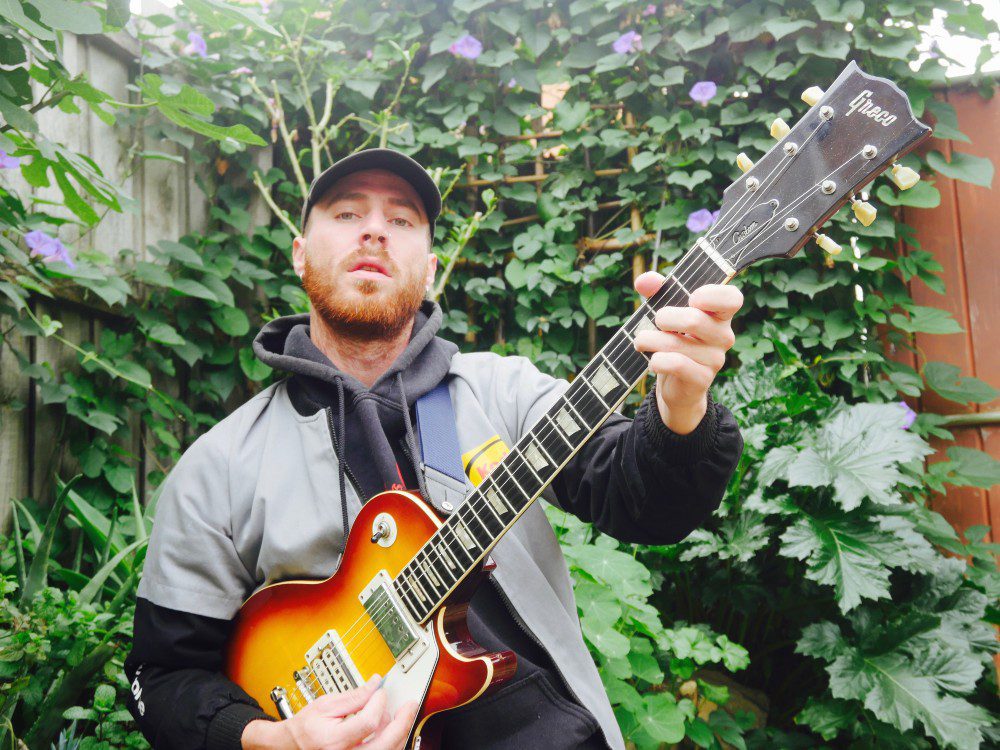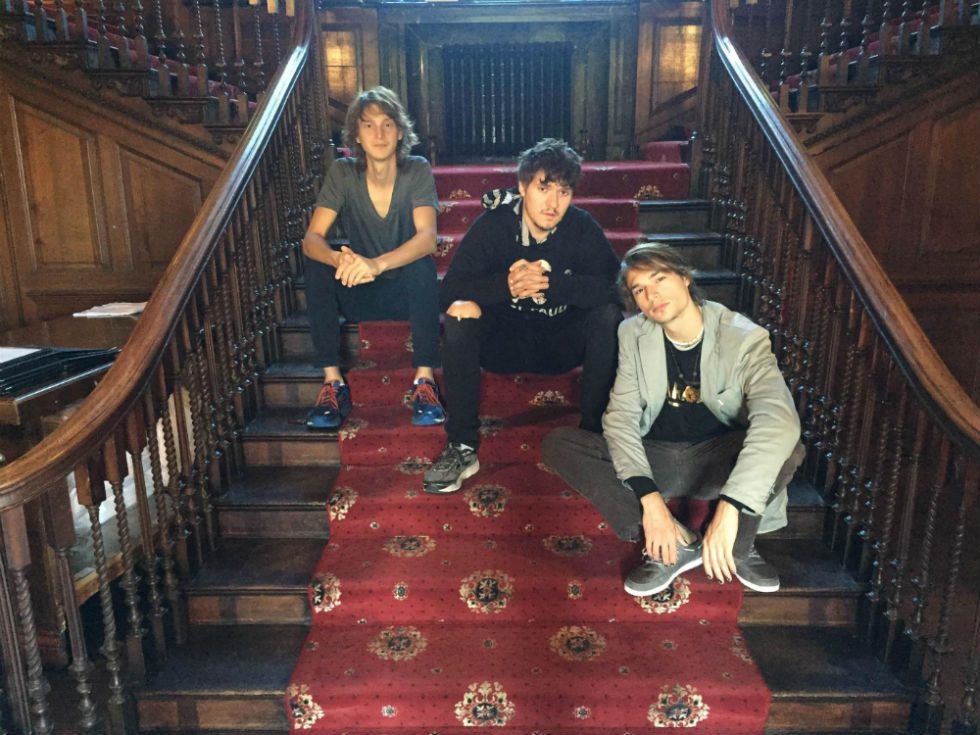

The Psychedelic Freaks take their own wild, whirling dervish-approach to jazz on their debut Passing Through The Doorways Of Your Mind, released on La Sape Records June 4. Like their name suggests, there’s a lot of adventurous, freak-out psych trips along a journey of the jazz spectrum. Vocals sound like they’ve bubbled up from deep underwater on the title track, which opens the record with its jubilant, eclectic sound centred around wah guitar.
The meeting of jazz with the tripped-out, mushrooms-and-disco biscuits world of psychedelic rock peaked in the late ‘60s as the same audience for Jimi Hendrix also spun Grateful Dead, Charles Mingus and Duke Ellington on vinyl. The genre-melding made sense: neither jazz nor psychedelic rock follows strict rules, both were always open to interpretation, individualisation and liberation.
Liberation and freedom in music while respecting its sacred nature is a hallmark of Horatio Luna (a.k.a. Henry Hicks), the Melbourne-based composer, improviser, producer and chief Psychedelic Freak behind this glorious, glimmering musical delivery. Founder of 30/70 Collective, a hip-hop/soul community, Hicks decided to move on after six years in late 2018. He’s also had his finger in the pie of multiple live and recorded acts and recordings around Melbourne. He’s restless, prolific, dedicated and – obviously – never short on inspiration and ideas. Also a member of jazz-house band Lush Life and collaborating partner to afro-house purveyors Teymori, Hicks may also be recognised for his remixes and contributions to numerous jazz/soul/hip hop compilations. Last year, his full-length album Boom Boom riffed on the joyful, juicy big beats of house music (titles like “No Words, Big Party” and “Bush Doof” give you an idea).
“I just don’t think there’s anyone creating this kind of fun, funky music in Australia,” says Hicks. “It’s like a time warp from the 1970s but explored in a new way, I hope.”
Stuck at home, Hicks was inspired to re-form The Psychedelic Freaks after starting and resting the project a few years before. The fruitful reformation resulted in their first, glorious LP, which – despite sounding live – was fully written and composed by Hicks then recorded on multi-track.
“Being in a room full of tape machines, effects pedals and guitars during the Melbourne lockdown, that’s when it all happened,” relates Hicks. “I’ve been a bass player for many years, and I’m a bass player first and foremost, but I really wanted to explore the guitar. I also really wanted to push the envelope in terms of what I could do with different genres like deep house, psychedelic rock and hip hop.”
Dreams, Fourth Way, Charles Lloyd and Don Ellis paved the way for big jazz band improvs into psychedelic sound. Think of a saxophone, trumpets, multiple basses and drums all working on nigh-on-impossible 17/8 time signatures or incorporating African instruments and call-response style vocals atop Latin percussion and Indian ragas care of the sitar, as Gabor Szabo did in the 1960s on LP Jazz Raga Impulse. In fact, Szabo’s quirky, country-meets-raga “Paint It Black” from 1966 spins The Rolling Stones’ classic right into another realm.
The Psychedelic Freaks’ “Illuminated Waterfalls” recalls the Afro-jazz of Fela Kuti, as well as tropical Bossa Nova and samba beats of the Astrud Gilberto school of Brazilian jazz. The bass is so prominent you might trip over it, were it not for the cosmic stardust glittering overtop.
The post-punk, doo-wop, spaghetti western guitars and wailing, punk rock vocals of 13th Floor Elevators’ “You’re Gonna Miss Me” lurks ghost-like in the wheels and cogs of this album – even if it’s only in rebellious, vivacious spirit. But it is not the wildmen of the ‘70s so much as multi-instrumentalist, rapper and producer Madlib who really inspired Hicks. Madvillain (Madlib’s collaborative project with MF Doom) is compulsory listening for anyone interested in melodic, adventurous hip hop.
“I was listening to, and informed by Madlib’s music, which is so inspiring to me because it’s multi-genre fluid,” says Hicks. “My own style of music is jazz house, or nu-jazz, jazztronic, whatever you want to call it. So, for me to get really deep on jazz house, I wanted to check out jazz fusion and all the derivatives of that, like acid jazz and things like that. By going really deep on jazz fusion, I learned a lot through the process and it gave me a better understanding of jazz house and the dance-floor sensibility.”
Hicks composed the album by himself, then sent the parts out to each artist with some basic directions. The multitrack recording was produced in Ableton. “I was working with some sample loops. I’d compose around the loop, then take the loop away at the end, and the result is what you hear on the record,” he explains. “That’s apparently how Madlib would make some of his music, except he’d jam with the DJ mix then take it away and hope he had something cool.”
The Psychedelic Freaks are spread across Australia, from Adelaide to Brisbane and Melbourne, they include Dufresne, Rohan The Intern, On-Ly, Billy Earwingz, and Felix Meredith. They’ll be playing a one-off live show at Melbourne’s The Evelyn in Fitzroy on June 11. Hicks will be playing with his own trio as Horatio Luna before The Psychedelic Freaks revel in their trippy, jazz fusion brilliance.
“It’s gonna be very psychedelic,” Hicks says with a laugh.
Naturally, he’s already working on other projects.
“I’ve always been a relentless creative,” admits Hicks. “I’m making a video clip for Lush Life at the moment… exploring my creativity in other ways, which is important to me. I do have the next couple of things coming up and ready to go. I’m always working on something because I’m very lucky to have the opportunity to do so.”
Follow Horatio Luna on Facebook for ongoing updates.



